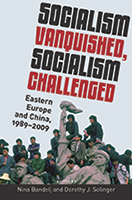
Socialism Vanquished, Socialism Challenged
Socialism Vanquished, Socialism Challenged examines the twenty-year aftermath of the 1989 assaults on established, state-sponsored socialism in the former Soviet bloc and in China. Editors Nina Bandelj and Dorothy J. Solinger bring together prominent experts on Eastern Europe and China to examine the respective trajectories of political, economic, and social transformations that unfolded in these two areas, while also comparing the changes that ensued within the two regions.
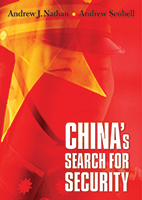
China’s Search for Security
Despite its impressive size and population, economic vitality, and drive to upgrade its military capabilities, China remains a vulnerable nation surrounded by powerful rivals and potential foes. The key to understanding China’s foreign policy is to grasp these geostrategic challenges, which persist even as the country comes to dominate its neighbors. Andrew J. Nathan and Andrew Scobell analyze China’s security concerns on four fronts: at home, with its immediate neighbors, in surrounding regional systems, and in the world beyond Asia.
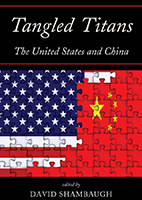
Tangled Titans
Tangled Titans offers a current and comprehensive assessment of the most important relationship in international affairs—that between the United States and China. How the relationship evolves will have a defining impact on the future of world politics, the Asian region, and the citizens of many nations. In this definitive book, leading experts provide an in-depth exploration of the historical, domestic, bilateral, regional, global, and future contexts of this complex relationship.
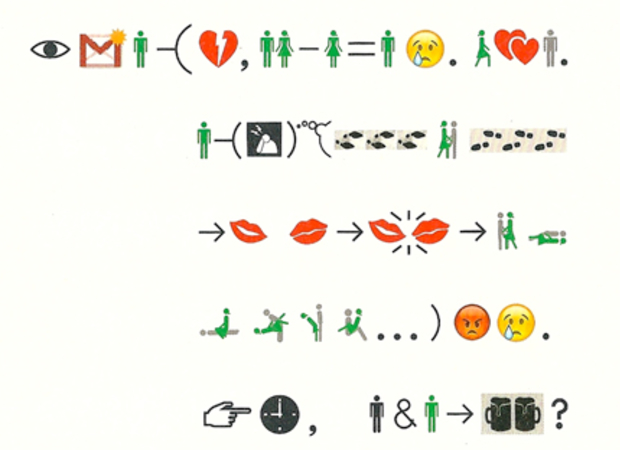
A New Tower of Babel
Xu Bing, the renowned Chinese artist whose many laurels include a MacArthur Foundation “genius” award and an appointment as vice president of China’s Central Academy of Fine Arts, has long...

Strong Society, Smart State
The rise and influence of public opinion on Chinese foreign policy reveals a remarkable evolution in authoritarian responses to social turmoil. James Reilly shows how Chinese leaders have responded to popular demands for political participation with a sophisticated strategy of tolerance, responsiveness, persuasion, and repression—a successful approach that helps explain how and why the Communist Party continues to rule China.
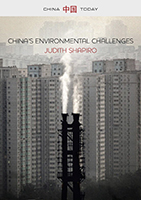
China’s Environmental Challenges
China’s huge environmental challenges are significant for us all. They affect not only the health and well-being of China but the very future of the planet. In this trailblazing book, noted China specialist and environmentalist Judith Shapiro investigates China’s struggle to achieve sustainable development against a backdrop of acute rural poverty and soaring middle class consumption.
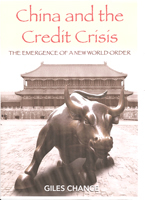
China and the Credit Crisis
China’s arrival on the world scene in the 1990s was the largest part of globalization. It brought many benefits worldwide: lower prices to Western consumers, large profits to multinationals, huge windfalls to commodity-rich countries, and employment and strong export growth to China. China’s emergence as a major global supplier and trader helped to create a boom which brought global growth with lower inflation and, for a time, an illusory stability, and also made China into the largest financer of the developed world.
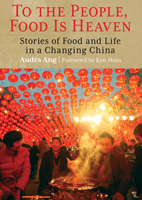
To the People, Food is Heaven
In China, life is comfortable for the fortunate few. For others, it’s a hand-to-mouth struggle for a full stomach, a place to live, wages for work done, and freedom to speak openly. It’s a place where few things are more important than food; “Have you eaten yet?” is another way of saying hello. After traversing the country and meeting its people, Ang shares her delicious experiences with us. She tells of a clandestine cup of salty yak butter tea with a Tibetan monk during a military crackdown, and explains how a fluffy spring onion omelet encapsulates China’s drive for rural development.
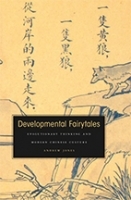
Developmental Fairy Tales
In 1992 Deng Xiaoping famously declared, “Development is the only hard imperative.” What ensued was the transformation of China from a socialist state to a capitalist market economy. The spirit of development has since become the prevailing creed of the People’s Republic, helping to bring about unprecedented modern prosperity, but also creating new forms of poverty, staggering social upheaval, physical dislocation, and environmental destruction.
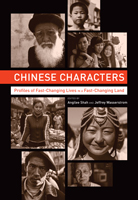
Chinese Characters
Though China is currently in the global spotlight, few outside its borders have a feel for the tremendous diversity of the lives being led inside the country. This collection of compelling stories challenges oversimplified views of China by shifting the focus away from the question of China’s place in the global order and zeroing in on what is happening on the ground. Some of the most talented and respected journalists and scholars writing about China today profile people who defy the stereotypes that are broadcast in print, over the airwaves, and online.
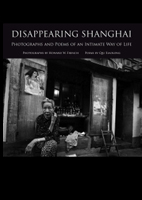
Disappearing Shanghai
This book is a photographic exploration of life in the old and rapidly disappearing quarters of Shanghai, with accompanying poems and essays by the author of fiction and poetry, Qiu Xiaolong.
The photographs, all taken in a documentary style over a period of five years, represent an intimate and invaluable visual natural history of a way of life in the workers quarters and other central districts of the city that held sway throughout the 20th century and into the early years of the 21st century, before yielding to the ambitious ongoing efforts at urban reconstruction.
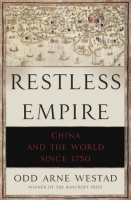
Restless Empire
As the twenty-first century dawns, China stands at a crossroads. The largest and most populous country on earth and currently the world’s second biggest economy, China has recently reclaimed its historic place at the center of global affairs after decades of internal chaos and disastrous foreign relations. But even as China tentatively reengages with the outside world, the contradictions of its development risks pushing it back into an era of insularity and instability—a regression that, as China’s recent history shows, would have serious implications for all other nations.
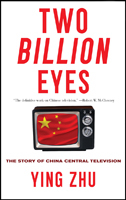
Two Billion Eyes
With over 1.2 billion viewers globally, including millions in the United States, China Central Television (CCTV) reaches the world’s single largest audience. The official mouthpiece of the Chinese Communist Party, CCTV is also a dynamic modern media conglomerate, fully reliant on advertising revenue and aggressively competitive both within China and on the global media scene. Yet this hugely influential media player is all but unknown to the west. Two Billion Eyes tells its story for the first time.
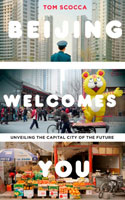
Beijing Welcomes You
Within the past decade, Beijing has debuted as the defining city of the now and foreseeable future, and China as the ascendant global power. Beijing is the ultimate representation of China's political and cultural capital, of its might—and threat. For so long, the city was closed off to the world, literally built around the Forbidden City, the icon of all that was ominous about China. But now, the country is eager to show off its new openness, its glory and magnanimity, and Beijing is its star.
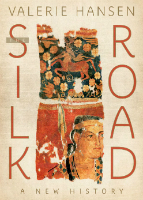
The Silk Road
The Silk Road is as iconic in world history as the Colossus of Rhodes or the Suez Canal. But what was it, exactly? It conjures up a hazy image of a caravan of camels laden with silk on a dusty desert track, reaching from China to Rome. The reality was different—and far more interesting—as revealed in this new history.
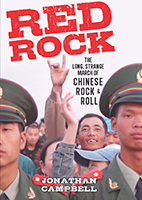
Red Rock
Rock and roll—rebellious, individualistic, explosive—seems incongruent with modern Chinese society. But as the music has evolved from a Western import into something uniquely Chinese, it has shaped and been shaped by China’s unique system and its relationship with the outside world. Red Rock: The Long, Strange March of Chinese Rock & Roll looks at the people and events that have created Chinese rock’s unique identity, and tracks the music’s long journey from the Mao years to present.

Sound Kapital
China exists today in a liminal realm, caught between the socialist idealism of old and a calamitous drive for wealth spurned by recent free market reforms. This seemingly unbridgeable gap tears at the country’s social fabric while provoking younger generations to greater artistic heights. The unique sound emerging from Beijing’s underground delves deeply into this void, aggressively questioning the moral and social basis of China’s fragile modernity even as it subsists upon it.

Winner Take All
Commodities permeate virtually every aspect of modern daily living, but for all their importance—their breadth, their depth, their intricacies, and their central role in daily life—few people who are not economists or traders know how commodity markets work. Almost every day, newspaper headlines and media commentators scream warnings of impending doom--shortages of arable land, clashes over water, and political conflict as global demand for fossil fuels outstrips supply. The picture is bleak, but our grasp of the details and the macro shifts in commodities markets remain blurry.
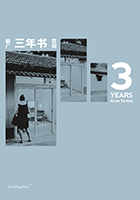
3 Years: Arrow Factory
Arrow Factory is an independently run art space located in a narrow 200-year-old alleyway in the center of Beijing. Founded in 2008, Arrow Factory reclaimed an existing storefront and transformed it into a space for site-specific installations and projects by contemporary artists that are designed to be viewed from the street twenty-four hours a day, seven days a week.
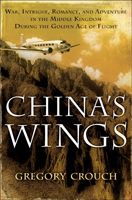
China’s Wings
From the acclaimed author of Enduring Patagonia comes a dazzling tale of aerial adventure set against the roiling backdrop of war in Asia. The incredible real-life saga of the flying band of brothers who opened the skies over China in the years leading up to World War II—and boldly safeguarded them during that conflict—China’s Wings is one of the most exhilarating untold chapters in the annals of flight.

Sustaining China’s Economic Growth After the Global Financial Crisis
The global financial crisis and ensuing economic downturn have raised many questions concerning the future of global economic growth. Prior to the financial crisis, global growth was characterized by growing imbalances, reflected primarily in large trade surpluses in China, Japan, Germany, and the oil exporting countries and rapidly growing deficits, primarily in the United States. The global crisis raises the question of whether the previous growth model of low consumption, high saving countries such as China is obsolete.

Eating Bitterness
Every year over 200 million peasants flock to China’s urban centers, providing a profusion of cheap labor that helps fuel the country’s staggering economic growth. Award-winning journalist Michelle Dammon Loyalka follows the trials and triumphs of eight such migrants—including a vegetable vendor, an itinerant knife sharpener, a free-spirited recycler, and a cash-strapped mother—offering an inside look at the pain, self-sacrifice, and uncertainty underlying China’s dramatic national transformation.

Every Nation for Itself
Forget the G-7 and the G-20; we are entering a leaderless "G- Zero" era—with profound implications for every country and corporation. The world power structure is facing a vacuum at the top. With the unifying urgency of the financial crisis behind us, the diverse political and economic values of the G-20 are curtailing the world's most powerful governments' ability to mediate growing global challenges. There is no viable alternative group to take its place. The United States lacks the resources and the political will to continue as the primary provider of global public goods.

China Airborne
More than two-thirds of the new airports under construction today are being built in China. Chinese airlines expect to triple their fleet size over the next decade and will account for the fastest-growing market for Boeing and Airbus. But the Chinese are determined to be more than customers. In 2011, China announced its Twelfth Five-Year Plan, which included the commitment to spend a quarter of a trillion dollars to jump-start its aerospace industry. Its goal is to produce the Boeings and Airbuses of the future.
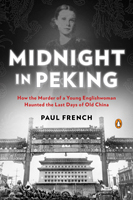
Midnight in Peking
January, 1937: Peking is a heady mix of privilege and scandal, lavish cocktail bars and opium dens, warlords and corruption, rumors and superstition—and the clock is ticking down on all of it. In the exclusive Legation Quarter, the foreign residents wait nervously for the axe to fall. Japanese troops have already occupied Manchuria and are poised to advance south. Word has it that Chiang Kai-shek and his shaky government, long since fled to Nanking, are ready to cut a deal with Tokyo and leave Peking to its fate.
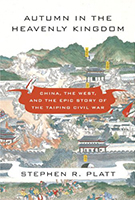
Autumn in the Heavenly Kingdom
A gripping account of China’s nineteenth-century Taiping Rebellion, one of the largest civil wars in history, Autumn in the Heavenly Kingdom brims with unforgettable characters and vivid re-creations of massive and often gruesome battles—a sweeping yet intimate portrait of the conflict that shaped the fate of modern China. The story begins in the early 1850s, the waning years of the Qing dynasty, when word spread of a major revolution brewing in the provinces, led by a failed civil servant who claimed to be the son of God and brother of Jesus.

The Tree That Bleeds
In 1997 a small town in a remote part of China was shaken by violent protests that led to the imposition of martial law. Some said it was a peaceful demonstration that was brutally suppressed by the government; others that it was an act of terrorism. When Nick Holdstock arrived in 2001, the town was still bitterly divided. The main resentment was between the Uighurs (an ethnic minority in the region) and the Han (the ethnic majority in China).
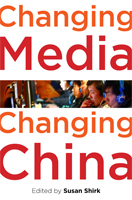
Changing Media, Changing China
Thirty years ago, the Chinese Communist Party (CCP) made a fateful decision: to allow newspapers, magazines, television, and radio stations to compete in the marketplace instead of being financed exclusively by the government. The political and social implications of that decision are still unfolding as the Chinese government, media, and public adapt to the new information environment.
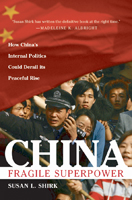
China: Fragile Superpower
Once a sleeping giant, China today is the world's fastest growing economy—the leading manufacturer of cell phones, laptop computers, and digital cameras—a dramatic turn-around that alarms many Westerners. But in China: Fragile Superpower, Susan L. Shirk opens up the black box of Chinese politics and finds that the real danger lies elsewhere—not in China's astonishing growth, but in the deep insecurity of its leaders. China's leaders face a troubling paradox: the more developed and prosperous the country becomes, the more insecure and threatened they feel.
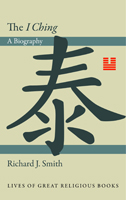
The I-Ching
The I Ching originated in China as a divination manual more than three thousand years ago. In 136 BCE the emperor declared it a Confucian classic, and in the centuries that followed, this work had a profound influence on the philosophy, religion, art, literature, politics, science, technology, and medicine of various cultures throughout East Asia. Jesuit missionaries brought knowledge of the I Ching to Europe in the seventeenth century, and the American counterculture embraced it in the 1960s.

The End of Cheap China
Many Americans know China for manufacturing cheap products, thanks largely to the country's vast supply of low-cost workers. But China is changing, and the glut of cheap labor that has made everyday low prices possible is drying up as the Chinese people seek not to make iPhones, but to buy them.

Protest with Chinese Characteristics
The origin of political modernity has long been tied to the Western history of protest and revolution, the currents of which many believe sparked popular dissent worldwide. Reviewing nearly one thousand instances of protest in China from the eighteenth to the early-nineteenth centuries, Ho-fung Hung charts an evolution of Chinese dissent that stands apart from Western trends.
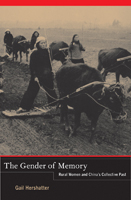
The Gender of Memory
What can we learn about the Chinese revolution by placing a doubly marginalized group—rural women—at the center of the inquiry? In this book, Gail Hershatter explores changes in the lives of seventy-two elderly women in rural Shaanxi province during the revolutionary decades of the 1950s and 1960s. Interweaving these women’s life histories with insightful analysis, Hershatter shows how Party-state policy became local and personal, and how it affected women’s agricultural work, domestic routines, activism, marriage, childbirth, and parenting—even their notions of virtue and respectability.

What the U.S. Can Learn from China
Mainstream media and the U.S. government regularly target China as a threat. Rather than viewing China’s power, influence, and contributions to the global economy in a negative light, Ann Lee asks: What can America learn from its competition? Why did China suffer so little from the global economic meltdown? What accounts for China’s extraordinary growth, despite one of the highest corporate tax rates in the world? How does the Chinese political system avoid partisan rancor but achieve genuine public accountability?
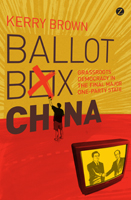
Ballot Box China
Since 1988, China has undergone one of the largest, but least understood experiments in grassroots democracy. Across 600,000 villages in China, with almost a million elections, some three million officials have been elected. The Chinese government believes that this is a step towards "democracy with Chinese characteristics". But to many involved in them, the elections have been mired by corruption, vote-rigging and cronyism.
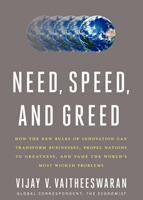
Need, Speed, and Greed
World-renowned economist Vijay V. Vaitheeswaran provides a deeply insightful, brilliantly informed guide to the innovation revolution now transforming the world. With echoes of Clayton Christensen’s The Innovator’s Dilemma, Tim Brown’s Change by Design, and Jared Diamond’s Guns, Germs, and Steel, Vaitheeswaran’s Need, Speed, and Greed introduces readers to the go-getters, imagineers, and visionaries now reshaping the global economy.
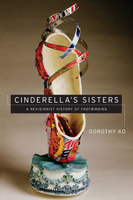
Cinderella’s Sisters
The history of footbinding is full of contradictions and unexpected turns. The practice originated in the dance culture of China’s medieval court and spread to gentry families, brothels, maid’s quarters, and peasant households. Conventional views of footbinding as patriarchal oppression often neglect its complex history and the incentives of the women involved. This revisionist history, elegantly written and meticulously researched, presents a fascinating new picture of the practice from its beginnings in the tenth century to its demise in the twentieth century.
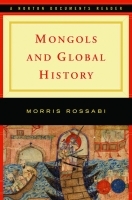
The Mongols and Global History
An accessible, documents-based introduction to the history of the Mongols. The volume opens with a brief original essay by Morris Rossabi, one of the world's foremost scholars on the Mongols. Rossabi's essay gives a historical and interpretive overview of the Mongols and charts their invasions and subsequent rule over the largest contiguous land empire in world history.
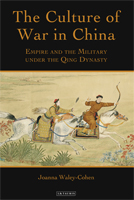
The Culture of War in China
What particularly distinguished the Qing from other ruling houses in China's imperial period? In this pathbreaking book, Joanna Waley-Cohen overturns conventional wisdom to identify military power and an accompanying martial ethos as defining characteristics of the high Qing empire. From 1636 to 1800, Emperors reinforced massive military expansion with a wide-ranging cultural campaign intended to bring military success, and the martial values associated with it, into the mainstream of cultural life.
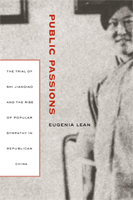
Public Passions
In 1935, a Chinese woman by the name of Shi Jianqiao murdered the notorious warlord Sun Chuanfang as he prayed in a Buddhist temple. This riveting work of history examines this well-publicized crime and the highly sensationalized trial of the killer. In a fascinating investigation of the media, political, and judicial records surrounding this cause célèbre, Eugenia Lean shows how Shi Jianqiao planned not only to avenge the death of her father, but also to attract media attention and galvanize public support.

Grounds of Judgment
Perhaps more than anywhere else in the world, the nineteenth century encounter between East Asia and the Western world has been narrated as a legal encounter. Commercial treaties—negotiated by diplomats and focused on trade—framed the relationships among Tokugawa-Meiji Japan, Qing China, Choson Korea, and Western countries including Britain, France, and the United States.
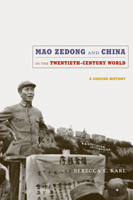
Mao Zedong and China in the Twentieth-Century World
Throughout this lively and concise historical account of Mao Zedong’s life and thought, Rebecca E. Karl places the revolutionary leader’s personal experiences, social visions and theory, military strategies, and developmental and foreign policies in a dynamic narrative of the Chinese revolution. She situates Mao and the revolution in a global setting informed by imperialism, decolonization, and third worldism, and discusses worldwide trends in politics, the economy, military power, and territorial sovereignty.
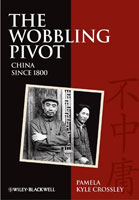
The Wobbling Pivot
This comprehensive but concise narrative of China since the eighteenth century builds its story around the delicate relationship between central government and local communities. With a nod to Ezra Pound's translation of the Chinese classic Zhongyong (The Unwobbling Pivot), Pamela Kyle Crossley argues that China's modern history has not wholly adhered to the ideal of the "unwobbling pivot", with China as a harmonious society based on principles of stability.
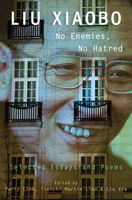
No Enemies, No Hatred
When the Nobel Peace Prize was awarded on December 10, 2010, its recipient, Liu Xiaobo, was in Jinzhou Prison, serving an eleven-year sentence for what Beijing called “incitement to subvert state power.” In Oslo, actress Liv Ullmann read a long statement the activist had prepared for his 2009 trial. It read in part: “I stand by the convictions I expressed in my ‘June Second Hunger Strike Declaration’ twenty years ago—I have no enemies and no hatred.
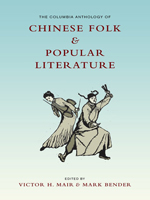
Columbia Anthology of Chinese Folk and Popular Literature
In The Columbia Anthology of Chinese Folk and Popular Literature, two of the world’s leading sinologists, Victor H. Mair and Mark Bender, capture the breadth of China’s oral-based literary heritage. This collection presents works drawn from the large body of oral literature of many of China’s recognized ethnic groups—including the Han, Yi, Miao, Tu, Daur, Tibetan, Uyghur, and Kazak—and the selections include a variety of genres.

China: A History
Eminently accessible, yet rigorous, this engaging introduction to the political, social, and cultural development of Chinese civilization tells the story of China—from its beginnings to the present day—in a way that goes beyond simple, misleading accounts of a glorious civilization falling victim to Western and Japanese imperialism or of a supposedly isolated country only recently and reluctantly opening to the outside world.
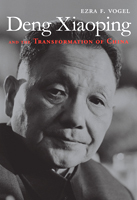
Deng Xiaoping and the Transformation of China
Harvard University Press: Perhaps no one in the twentieth century had a greater long-term impact on world history than Deng Xiaoping. And no scholar of contemporary East Asian history and culture is better qualified than Ezra Vogel to disentangle the many contradictions embodied in the life and legacy of China’s boldest strategist. Once described by Mao Zedong as a “needle inside a ball of cotton,” Deng was the pragmatic yet disciplined driving force behind China’s radical transformation in the late twentieth century.
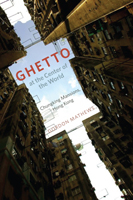
Ghetto at the Center of the World
There is nowhere else in the world quite like Chungking Mansions, a dilapidated seventeen-story commercial and residential structure in the heart of Hong Kong’s tourist district. A remarkably motley group of people call the building home: Pakistani phone stall operators, Chinese guesthouse workers, Nepalese heroin addicts, Indonesian sex workers, and traders and asylum seekers from all over Asia and Africa live and work there—even backpacking tourists rent rooms. In short, it is possibly the most globalized spot on the planet.
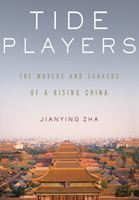
Tide Players
In Tide Players, acclaimed New Yorker contributor and author Jianying Zha depicts a new generation of movers and shakers who are transforming modern China. Through half a dozen sharply etched and nuanced profiles, Tide Players captures both the concrete detail and the epic dimension of life in the world’s fastest growing economy.
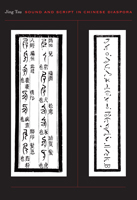
Sound and Script in Chinese Diaspora
What happens when language wars are not about hurling insults or quibbling over meanings, but are waged in the physical sounds and shapes of language itself? Native and foreign speakers, mother tongues and national languages, have jostled for distinction throughout the modern period. The fight for global dominance between the English and Chinese languages opens into historical battles over the control of the medium through standardization, technology, bilingualism, pronunciation, and literature in the Sinophone world.
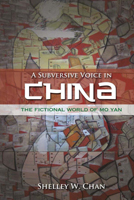
A Subversive Voice in China
Mo Yan, the most prolific writer in present-day China as well as one of its most prominent avant-gardists, is an author whose literary works have enjoyed an enormous readership and have caught much critical attention not only in mainland China, Hong Kong, and Taiwan but also in many other countries around the world. This book provides the most comprehensive exposition of Mo Yan’s fiction in any language. Author Shelley Chan delves into Mo Yan’s entire collection of literary works, considering novels as well as short stories and novellas.
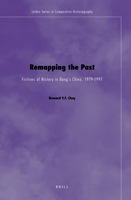
Remapping the Past
The most prominent literary phenomenon in the 1980s and 1990s in China, historical fiction, has never been systematically surveyed in Anglophone scholarship. This is the first investigation into how, by rewriting the past, writers of Deng Xiaoping’s reform era undermined the grand narrative of official history. It showcases fictions of history by eleven native Chinese, Muslim and Tibetan authors.
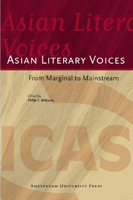
Asian Literary Voices
The essays in this collection give voice to a wide range of artists and writers from China, Japan, Korea, and India who to this day remain largely unknown or poorly understood in literary circles around the world. Contributors from Asia, Europe, and the United States cover a wide range of topics from a vast expanse of time, from Sanskrit poetry dating back over a thousand years to Chinese fiction of the twenty-first century. —University of Chicago Press
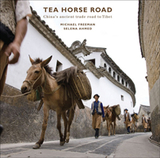
Tea Horse Road
One of the longest and most dramatic trade routes of the ancient world, the Tea Horse Road carried a crucial exchange for 13 centuries between China and Tibet. China needed war horses to protect its northern frontier, and Tibet could supply them. When the Tibetans discovered tea in the 7th century, it became a staple of their diet, but its origins are in southwest China, and they had to trade for it.
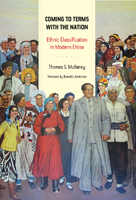
Coming to Terms with the Nation
China is a vast nation comprised of hundreds of distinct ethnic communities, each with its own language, history, and culture. Today the government of China recognizes just 56 ethnic nationalities, or minzu, as groups entitled to representation. This controversial new book recounts the history of the most sweeping attempt to sort and categorize the nation's enormous population: the 1954 Ethnic Classification project (minzu shibie). Thomas S.
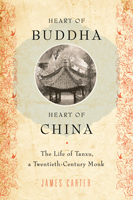
Heart of Buddha, Heart of China
The Buddhist monk Tanxu surmounted extraordinary obstacles—poverty, wars, famine, and foreign occupation—to become one of the most prominent monks in China, founding numerous temples and schools, and attracting crowds of students and disciples wherever he went. Now, in Heart of Buddha, Heart of China, James Carter draws on untapped archival materials to provide a book that is part travelogue, part history, and part biography of this remarkable man.
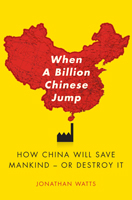
When a Billion Chinese Jump
As a young child, Jonathan Watts believed if everyone in China jumped at the same time, the earth would be shaken off its axis, annihilating mankind. Now, more than thirty years later, as a correspondent for The Guardian in Beijing, he has discovered it is not only foolish little boys who dread a planet-shaking leap by the world's most populous nation. When a Billion Chinese Jump is a road journey into the future of our species.
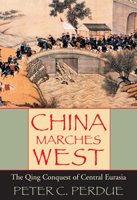
China Marches West
From about 1600 to 1800, the Qing empire of China expanded to unprecedented size. Through astute diplomacy, economic investment, and a series of ambitious military campaigns into the heart of Central Eurasia, the Manchu rulers defeated the Zunghar Mongols, and brought all of modern Xinjiang and Mongolia under their control, while gaining dominant influence in Tibet. The China we know is a product of these vast conquests. Peter C. Perdue chronicles this little-known story of China’s expansion into the northwestern frontier.





